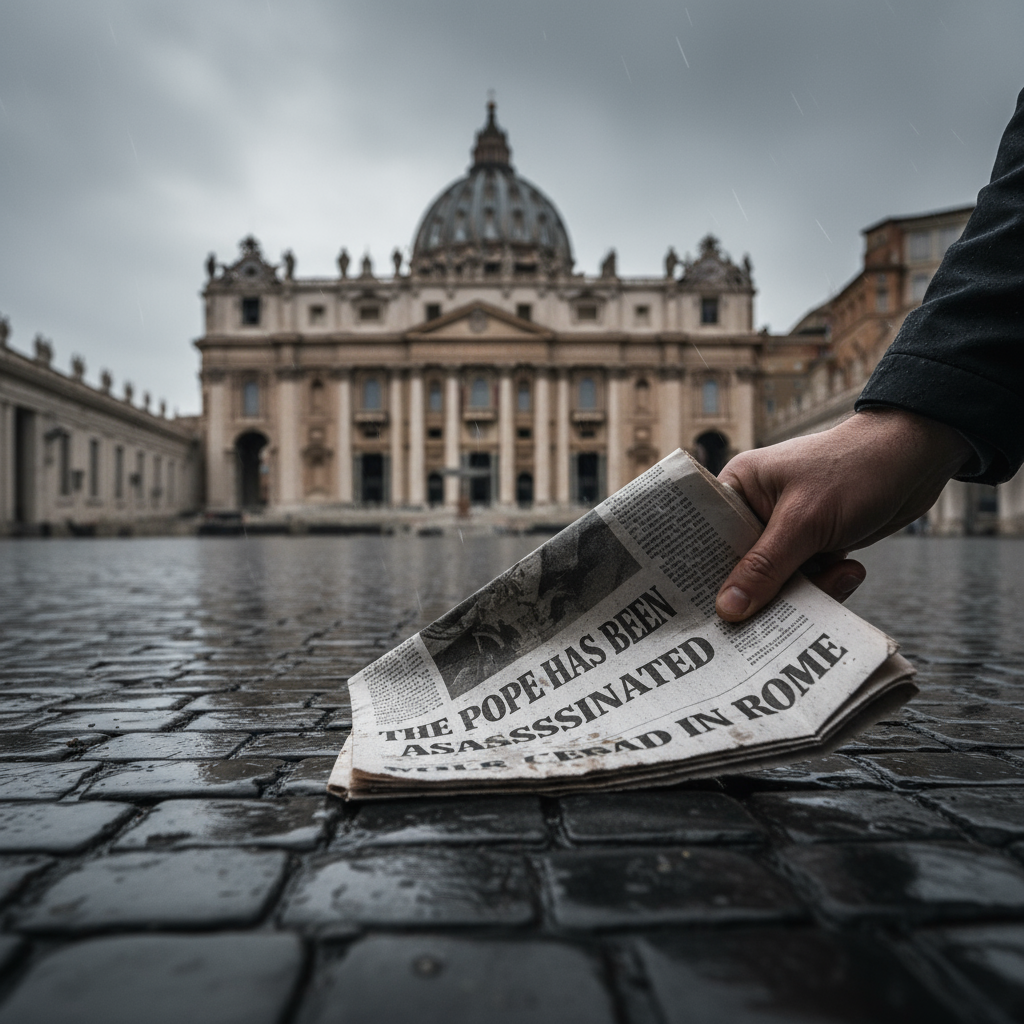In the current landscape of geopolitical tension, the world watches with bated breath as a new narrative begins to unfold. In a shocking turn of events, an American Pope takes the throne in the Vatican—a moment that should be celebrated for its historic significance has, instead, sparked a flurry of conspiracy theories and fears of impending chaos.
In this fictional exploration, we delve into the possibility that this sudden papal appointment is merely a diversion, a meticulously orchestrated false flag operation designed to incite a religious war in the Middle East. Could this be the catalyst that ignites the tinderbox of global conflict, ultimately leading us towards World War III?
The seeds of this scenario are sown in the ongoing conflicts that have plagued the Middle East for decades—centuries, even. With sectarian divides and tensions at an all-time high, the appointment of a U.S.-born Pope could be framed by some as an affront to the region’s religious integrity. Misinformation can breed chaos, and it doesn’t take much for the sparks of hostility to ignite.
Imagine the media frenzy that would ensue, with the narrative spun around this American Pope as a puppet of Western interests, prodding the faithful into frenzies of nationalism and religious fervor. The rhetoric intensifies, leading to protests, clashes, and divisions within and beyond the region. The potential for exploitation by extremist factions rises, pushing the world’s delicate balance toward an all-out war—a scenario that many fear could escalate beyond traditional borders.
In this speculative landscape, the role of major powers becomes crucial. As tensions surge, we find ourselves contemplating the involvement of Russia. Currently, it’s a nation straddling both confrontation and cooperation with the West. If Russia were to shift its stance and side unequivocally with the West, a united front might emerge, marginalizing extremist factions and diffusing rising tensions. However, absent that cooperation, the likelihood of chaos grows exponentially. The West, without a strong alliance and unified front, risks falling under the weight of a conflict that spirals out of control.
While this narrative is steeped in fiction and speculation, it serves as a chilling reminder of how intertwined current events are with history’s complexities. The current climate leaves room for fear and imagination, where the potential for conflict clouds our ability to see a pathway to peace.
In conclusion, as we reflect upon this fictional scenario involving a new papacy and the risk of war, let us also recognize the power of dialogue, understanding, and unity. The challenges we face today are significant, but through cooperation and the pursuit of common ground, we can seek to navigate away from the precipice of conflict, steering towards a future marked by peace rather than war. The real battle lies in ensuring that fiction doesn’t become prologue to a devastating reality.
